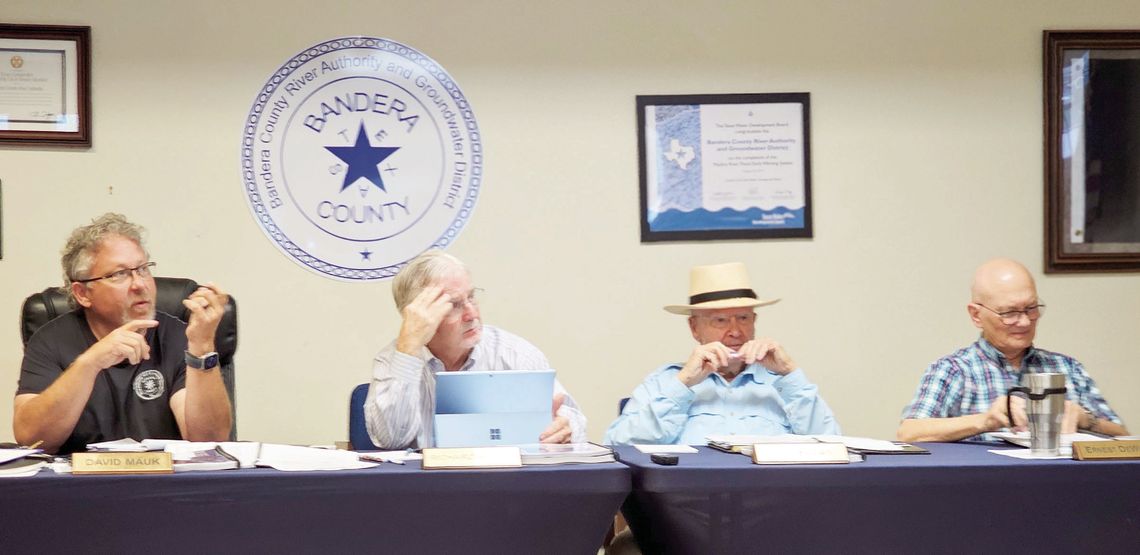The Bandera County River Authority and Groundwater District board denied a request for rehearing from Vanderpool Management, LP during its quarterly meeting last month, while attendees raised concerns about worsening drought conditions and the future of land ownership in the region.
The meeting drew a modest crowd of about 15, notably fewer than previous sessions.
Public comments kicked off the meeting, with several speakers emphasizing the vital importance of water to life in the Hill Country.
One speaker warned that the continuing lack of water could force property owners to sell their land at deep losses, allowing others to capitalize on the situation.
Dr. Margo Denke, representing Friends of Hondo Canyon, voiced support for the board’s efforts to safeguard groundwater access.
She encouraged the board to increase application fees for high-volume water permits and suggested that the applicants themselves be responsible for paying them.
Christine Esterage highlighted concerns about land consolidation, pointing specifically to Vanderpool Management, LP, and said only a small number of property owners around her held most of the land.
A number of attendees reserved their comments for later in the meeting, specifically the fourth agenda item concerning Vanderpool Management’s request for discussion and rehearing of the District’s Final Order tied to the State Office of Administrative Hearings’ proposed decision on a permit application. The board voted unanimously to deny the request.
General Manager Dave Mauk presented updates on the district’s annual report and outlined multiple areas of concern. He noted that water quality has declined, and Lake Medina’s water levels had dropped to just 3.2% as of September 2024. However, he emphasized the district’s robust monitoring system and its collaboration with Texas A&M in tracking bacterial activity and other metrics.
Mauk also discussed the district’s education and outreach work with local elementary schools and reviewed the quarterly budget, reporting an 81% return in tax revenue.
In his groundwater and well report, Mauk stated that well permits had decreased from 25 in 2024 to 20 in 2025. He said BCRAGD maintains several monitoring wells in the western part of the county.
He also compared the 10-year status of the Middle Trinity and Lower Trinity aquifers and spoke about in-house surface water quality sampling throughout the region. According to Mauk, the county is in an “exceptional drought” phase, with forecasts predicting hotter, drier, and windier conditions ahead.
“The problem is the small rains we get don’t soak in enough to recharge the aquifer,” Mauk said.
During the meeting, Mauk introduced Dr. Doug Schnoefelan, a new hydrologist at the organization, whom he described as a “real quality scientist.”
The meeting adjourned at 12:30 p.m.





.png)
